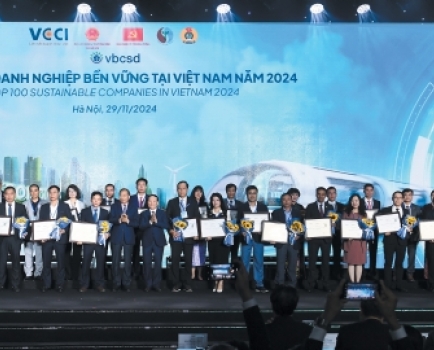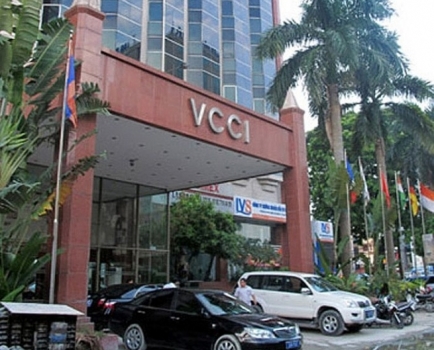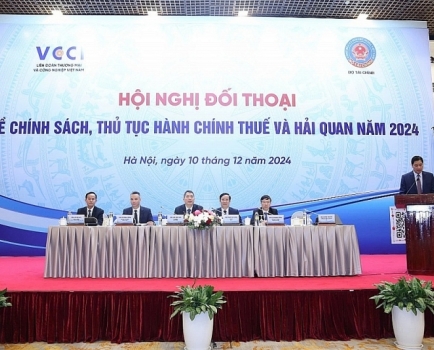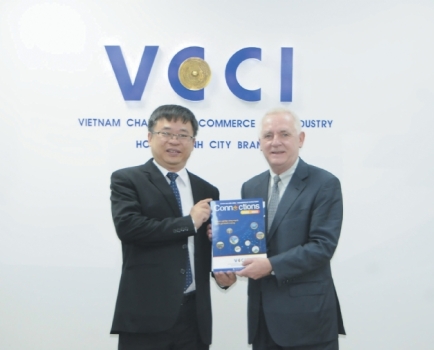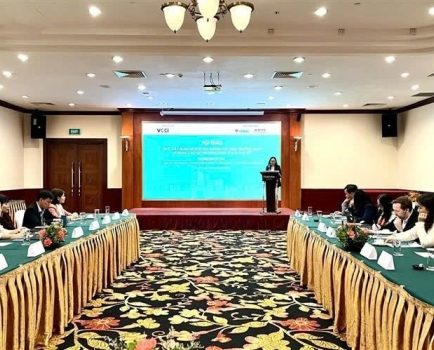Too many barriers will cause businesses to fail
Tue, 27 Sep 2022 14:09:00 | Print | Email Share:
The Steering Committee on reviewing Resolution 09 on promoting the role of Vietnamese business in the period of industrialization, modernization and international integration recently had a meeting with VCCI (Vietnam Chamber of Commerce and Industry).
Tran Tuan Anh, Member of the Politburo, Head of the Central Economics Committee, said Vietnam has nearly 900,000 enterprises, 14,400 cooperatives and 5.1 million business households.
A number of economic groups with powerful financial capability, modern administrative scheme and technology, pioneering in important business fields, such as automobile manufacturing, aviation, technology information, telecommunications, service, real estate and agriculture have emerged. Vietnam also has seven billionaires.
VCCI Chairman Pham Tan Cong commented that business development recently has shown positive signs. The number of businesses throughout the country has increased by three times, from 280,000 (2010) to 860,000 as of December 31, 2021.
Businesses make up 60 percent of GDP and 30 percent of total laborers work there.
However, the number of enterprises is still below expectations. The goal of having 1 million businesses by 2020 has failed and the goal of having 1.5 million enterprises by 2025 proves to be a great challenge.
There are also problems in enterprises’ quality. The 2021 economic census showed that 97 percent of enterprises were small and medium sized. Of these, 50 percent had revenue of less than VND3 billion a year, 13 percent had revenue of between VND3 billion and VND10 billion. Meanwhile, the number of enterprises with revenue of over VND300 billion accounted for only one percent.
Using small numbers of workers, with small capital scale and low revenue, the majority of private enterprises cannot attract skilled qualified workers. They find it difficult to mobilize financial resources and lack capital to invest in technology, equipment and machines.
This explains why private enterprises mostly operate in the fields of commerce and service, while few enterprises operate in the processing and manufacturing industry and mostly undertake labor-intensive production.
Vietnam doesn’t have many brands competitive in regional and world markets. And Vietnamese enterprises still cannot take full advantage of the benefits from economic and commercial agreements.
However, it is necessary not only to try to increase the number of enterprises but also improve their quality. Chairman of Association for Small and Medium Enterprises (SMEs) Nguyen Van Than said the core problem won’t be solved if Vietnam only runs after growth in scale but does not find solutions to improve quality.
Vietnam’s productivity needs to be higher. In the fashion industry, for example, one worker needs to have general average productivity of $20,000-25,000 per annum to ensure competitiveness. If not, it will be difficult for Vietnam to join the global supply chains.
Obstacles
One important problem is the institutional scheme and obstacles in the business environment.
According to Tran Viet Anh, deputy chair of the HCM City Business Association, businesses don’t have opportunities to join the process of law compilation from the beginning, though the policies cover their operations.
Some businesses said that in their localities leaders at different levels usually have meetings with the business community to learn about business situations. However, they mostly listen to businesses’ complaints, and businesses nearly don’t have opportunities to contribute their opinions about policies.
Economists say the business environment in Vietnam recently has shown significant but not substantial improvements. The barriers to businesses newly joining the market are still numerous.
Multiple business conditions hinder development, from the time when ideas take shape to the time when investors decide to develop projects or set up a business.
Vietnam wants to develop the automobile industry. However, in 2017, the industry was added to the list of conditional business fields under the Investment Law Decree 116/2017 stipulated strict conditions for manufacturing, assembling, and importing cars and guaranteeing service provision.
As a result, trade companies specializing in importing CBU (complete built unit) cars under unofficial-quota mode have been weeded out from the market. Regarding the manufacturing and assembling of cars with nine or fewer seats, there is only one enterprise – Vinfast.
Having huge capital of over $1 billion, Vinfast launched three car models using internal combustion engine and once held 11 percent of the market share of 9 or less seats.
However, because of required big investments, high taxes and fees, and big losses, in 2022, Vinfast stopped making internal combustion engine cars and now focuses on making electric cars.
Big barriers to market entry, high informal costs, petty corruption, regular inspections, and the state of unprotected business interests are the obstacles hindering business freedom.
According to Mr. Pham Tan Cong, in order to develop a strong enterprise force, it is necessary to implement many specific and synchronous solutions, in which, there must be a breakthrough in: perfecting the business environment, investment institutions; building a system of policies and laws in the direction of protecting enterprises, encouraging businessmen to do genuine business and innovate; prevent and eliminate illegal businesses and entrepreneurs.
By: Translator: LeAnh-Bizic/Tran Thuy/Vietnamnet
Source: https://vietnamnet.vn/moi-truong-kinh-doanh-nhieu-rao-can-phat-trien-doanh-nghiep-se-that-bai-2060811.html
---------------------------------------------
Same category News :



